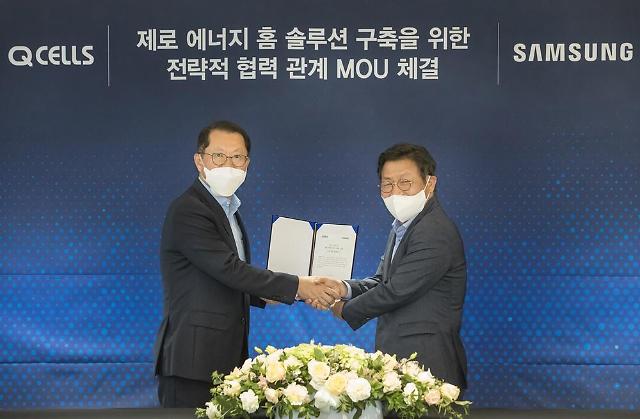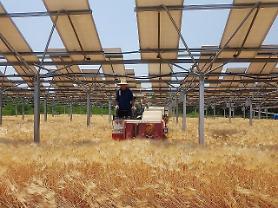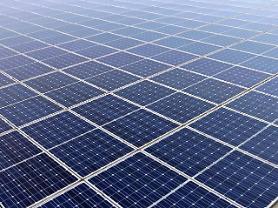
[Courtesy of Samsung Electronics]
SEOUL -- Hanwha Q Cells, the solar cell-making wing of South Korea's Hanwha Group, tied up with Samsung Electronics to provide a household energy solution that reduces carbon emissions by efficiently using energy produced at home through solar power. Their main target is Europe and the United States.
Hanwha Q Cells will secure electricity production through household solar modules and an energy storage system (ESS). "We will establish a firm position in global household energy markets through synergy between the two companies," Hanwha Q Cells CEO Kim Hee-cheol said in a statement on July 5.
Samsung will provide an eco-friendly heating system (EHS) heat pump and a system that efficiently manages energy consumed by various smart home appliances. EHS heat pumps can produce hot water using air heat and electricity. "We are going to target home energy markets in the U.S. and Europe," said Lee Jae-seung, head of Samsung's household appliances business.
A heat pump transfers thermal energy from a cooler space to a warmer space using the refrigeration cycle, being the opposite direction in which heat transfer would take place without the application of external power. Heat pumps emit less greenhouse gas than furnaces burning natural gas. Common device types include air source heat pumps, ground-source heat pumps, water source heat pumps and exhaust air heat pumps.
Air source heat pumps convert energy from the air. An outside fan draws air into a fluid, which passes through a container that raises the fluid's temperature. A ground source heat pump uses energy from the sun to heat a home via a series of buried pipes that extract energy from the ground. Solar water heating uses heat from the sun with solar panels or flat plate collectors.
Copyright ⓒ Aju Press All rights reserved.



